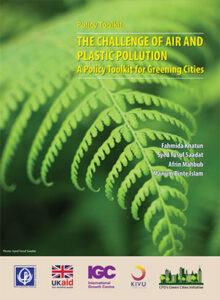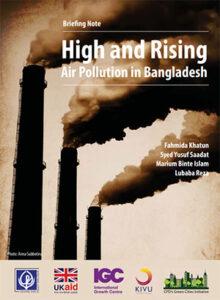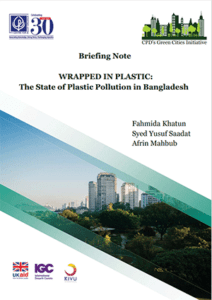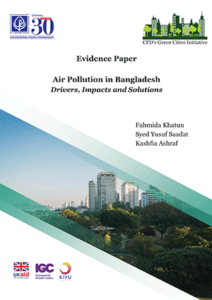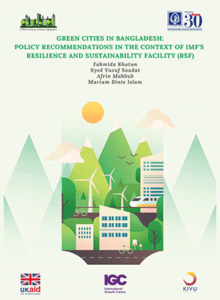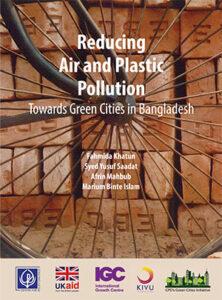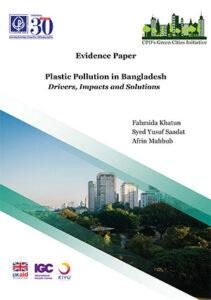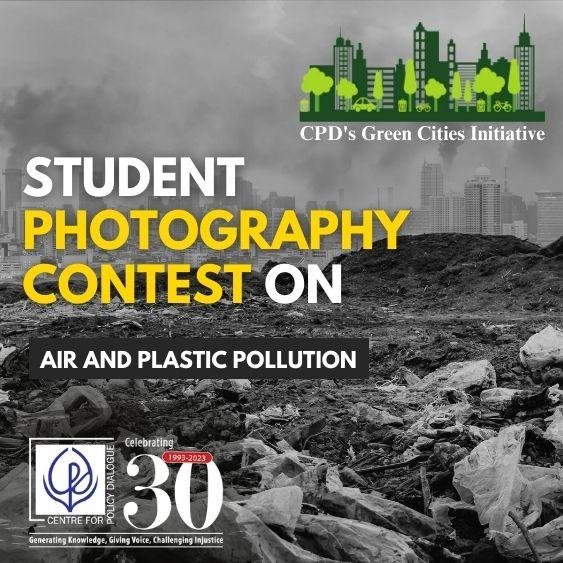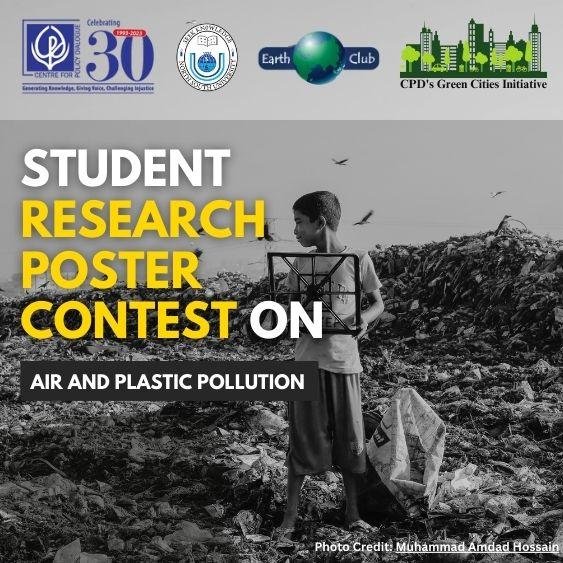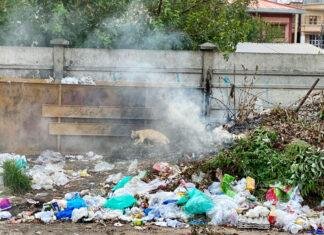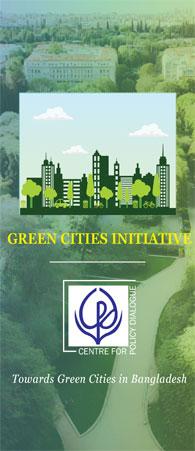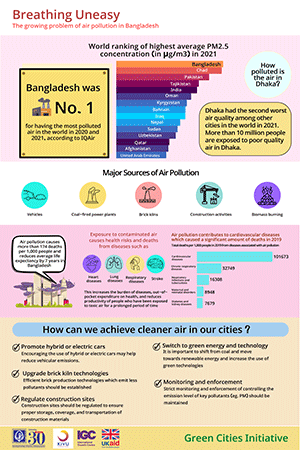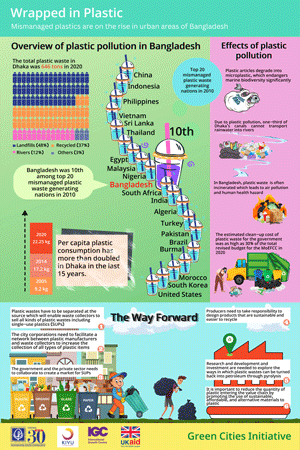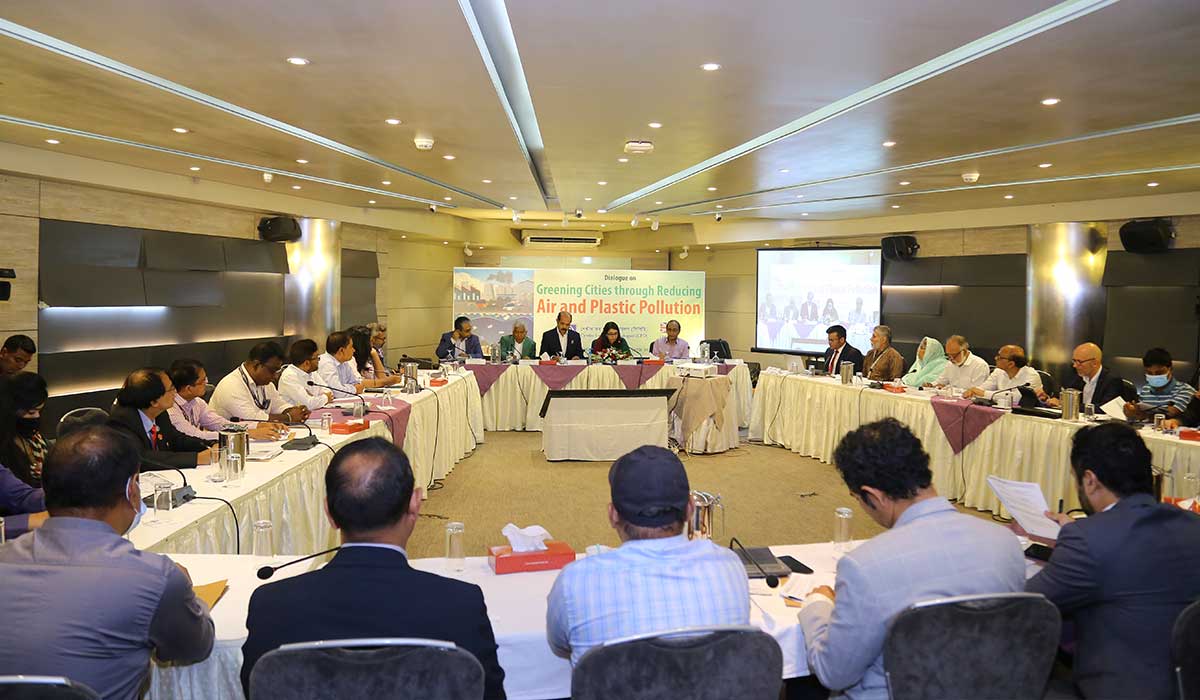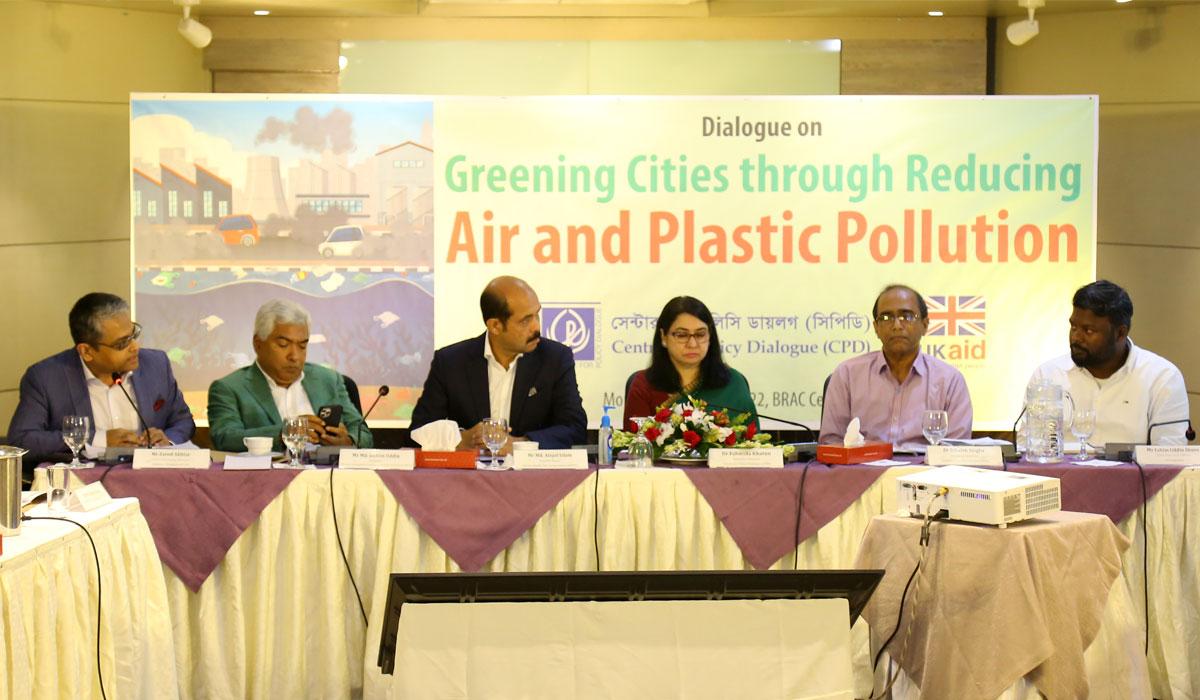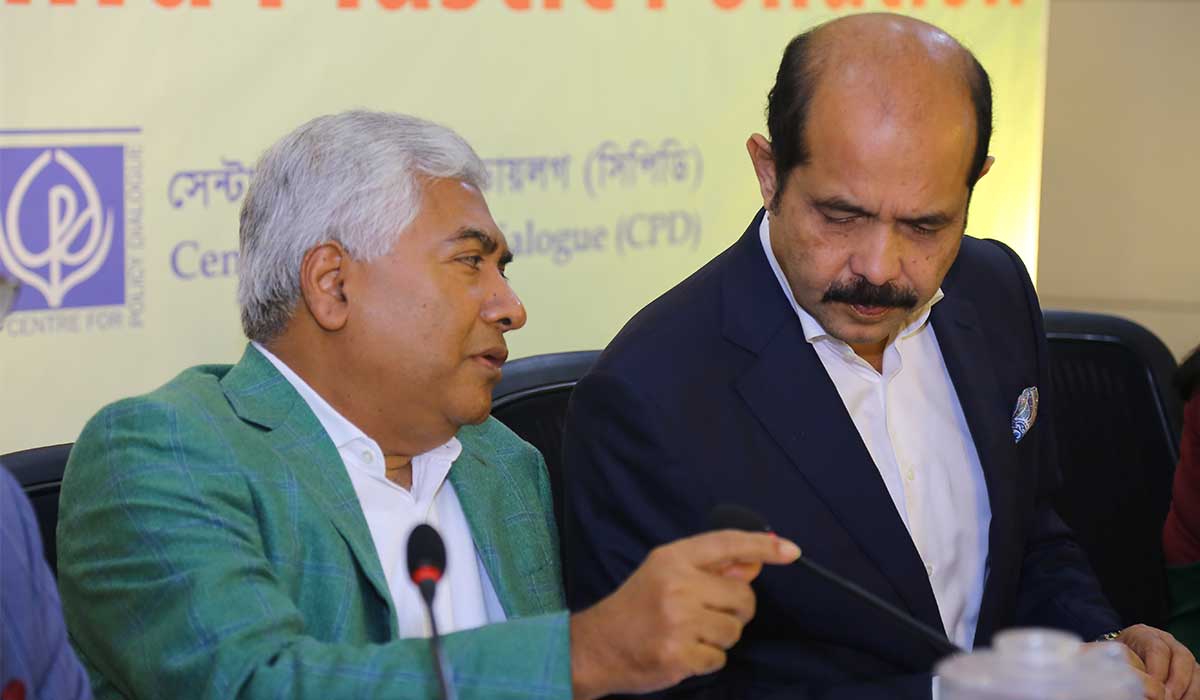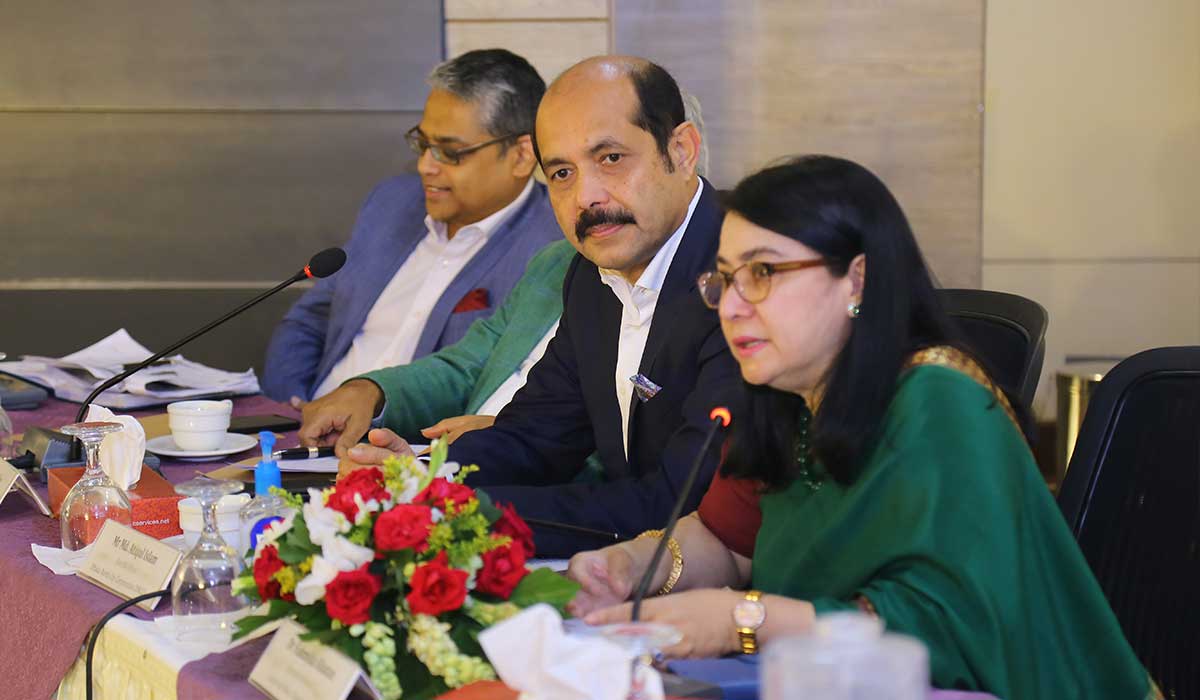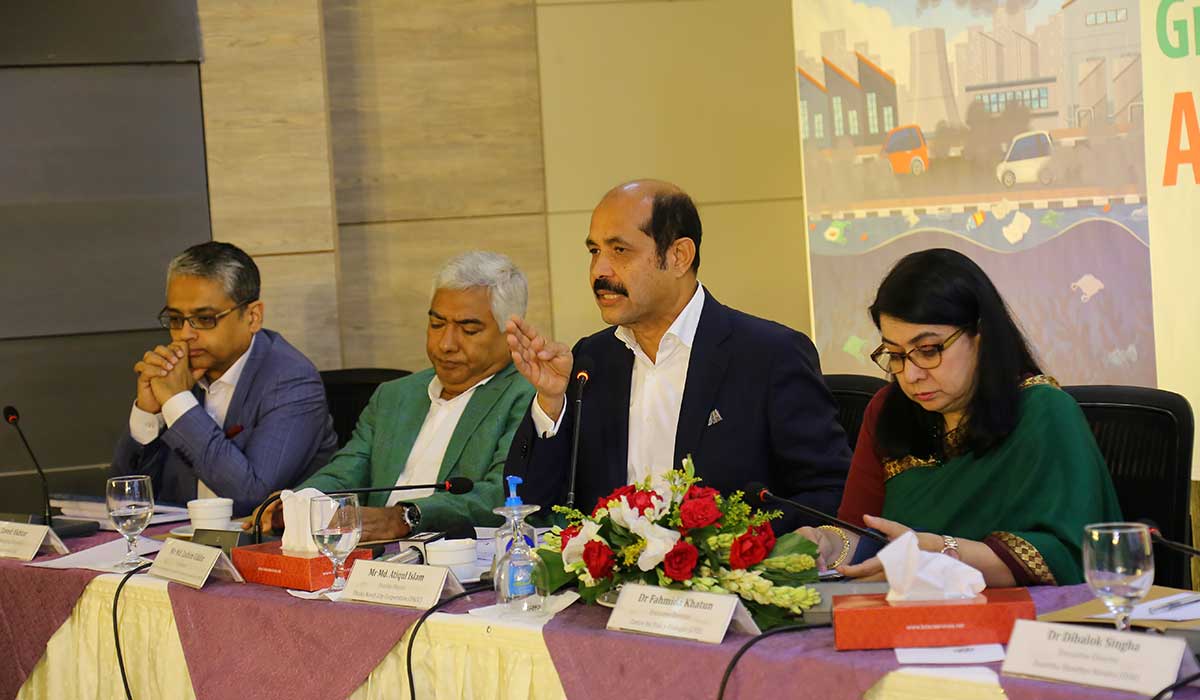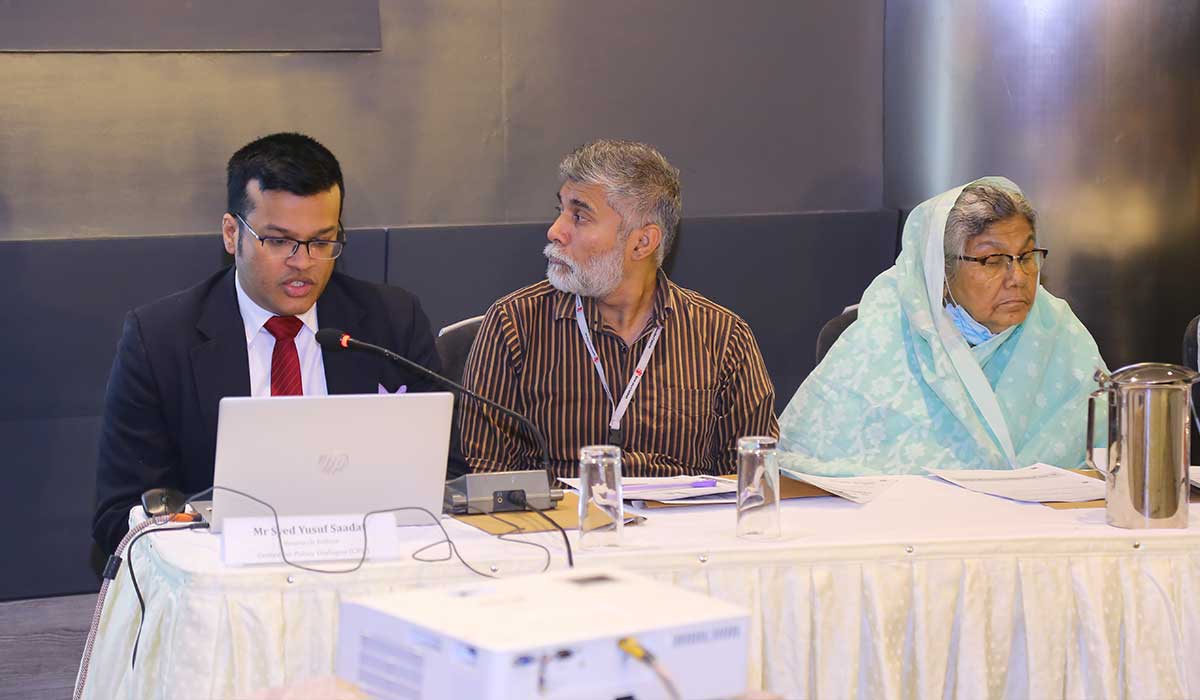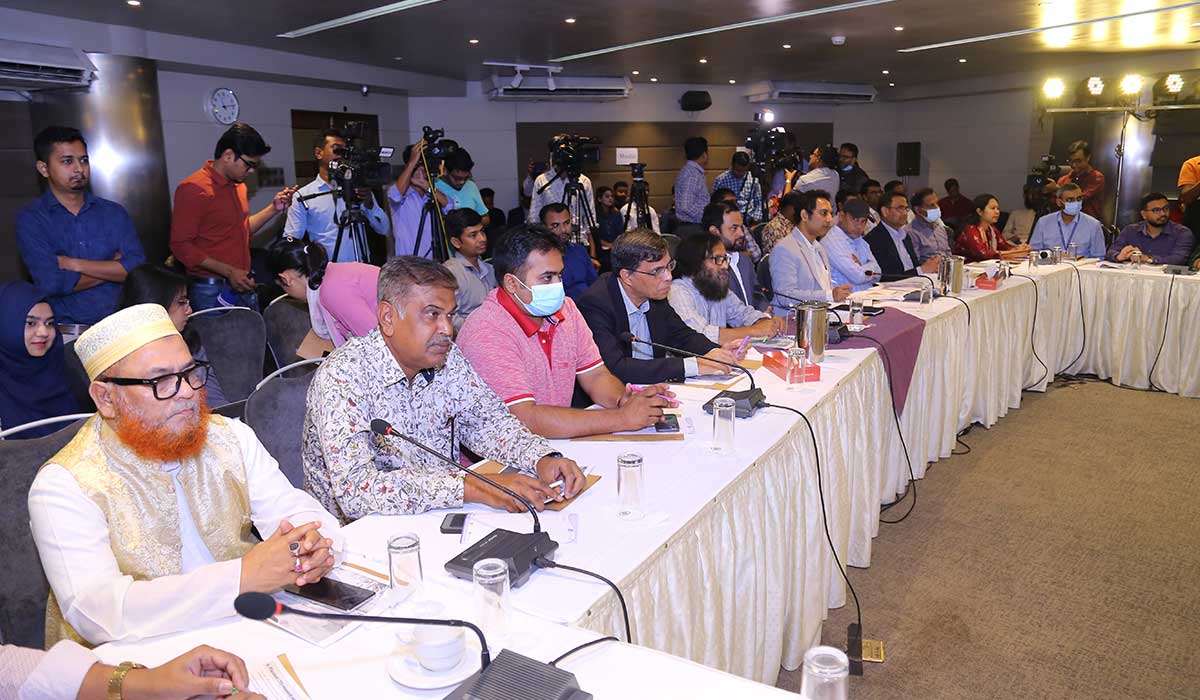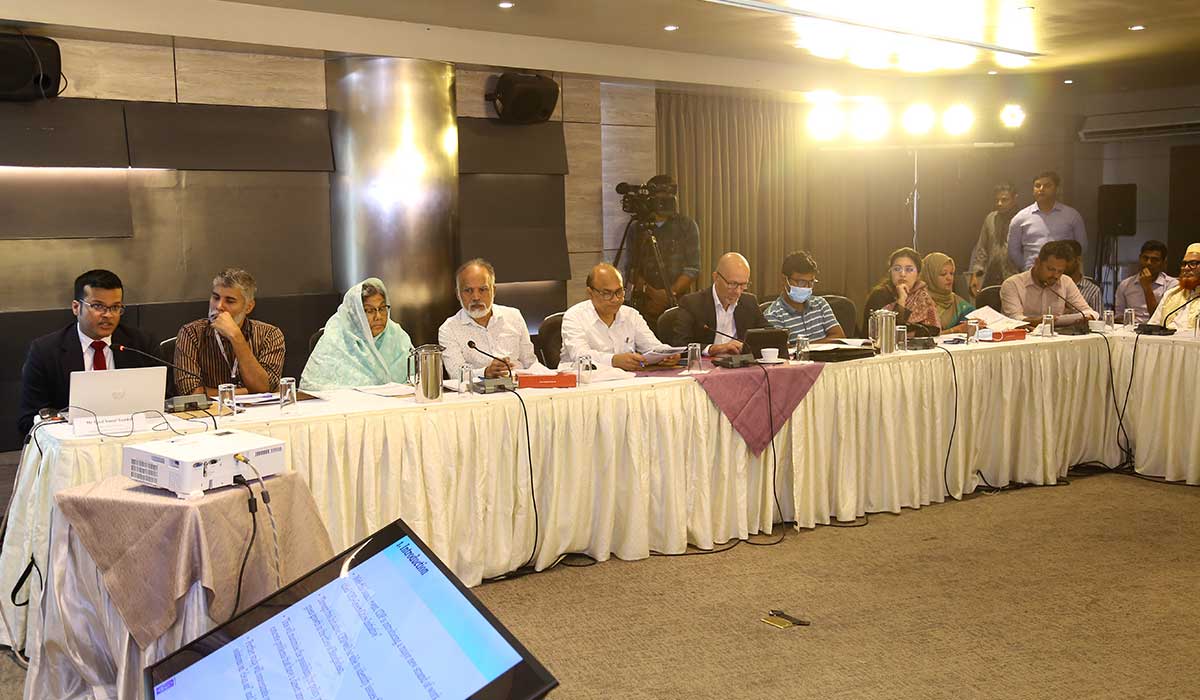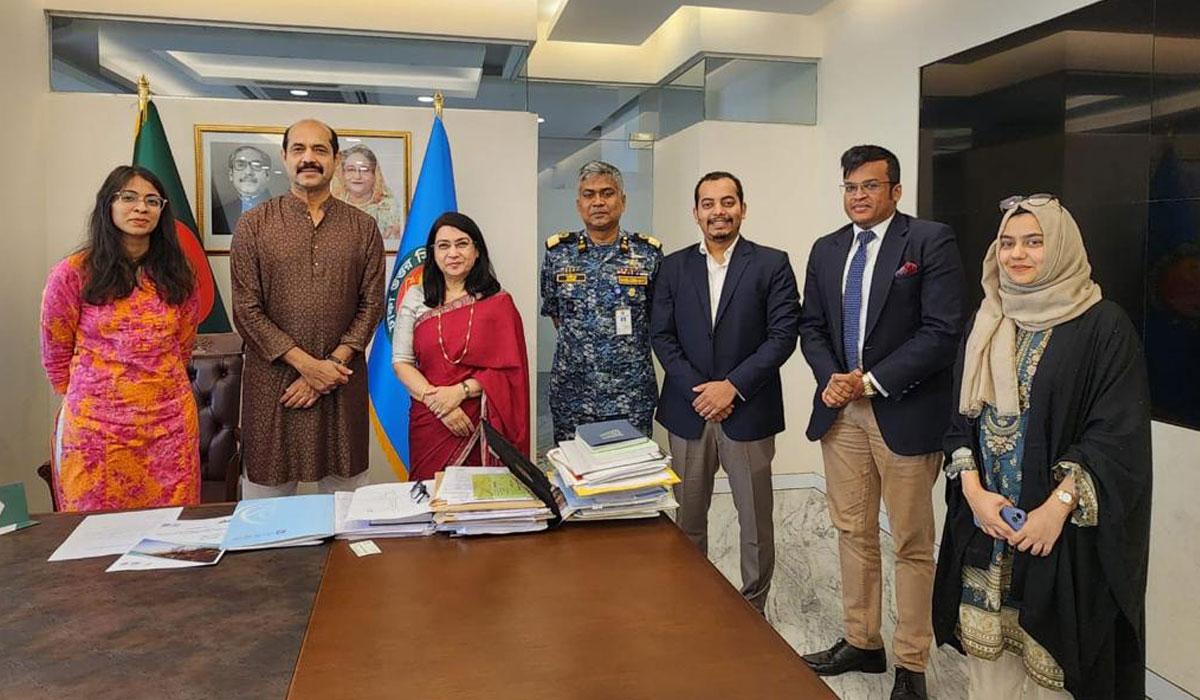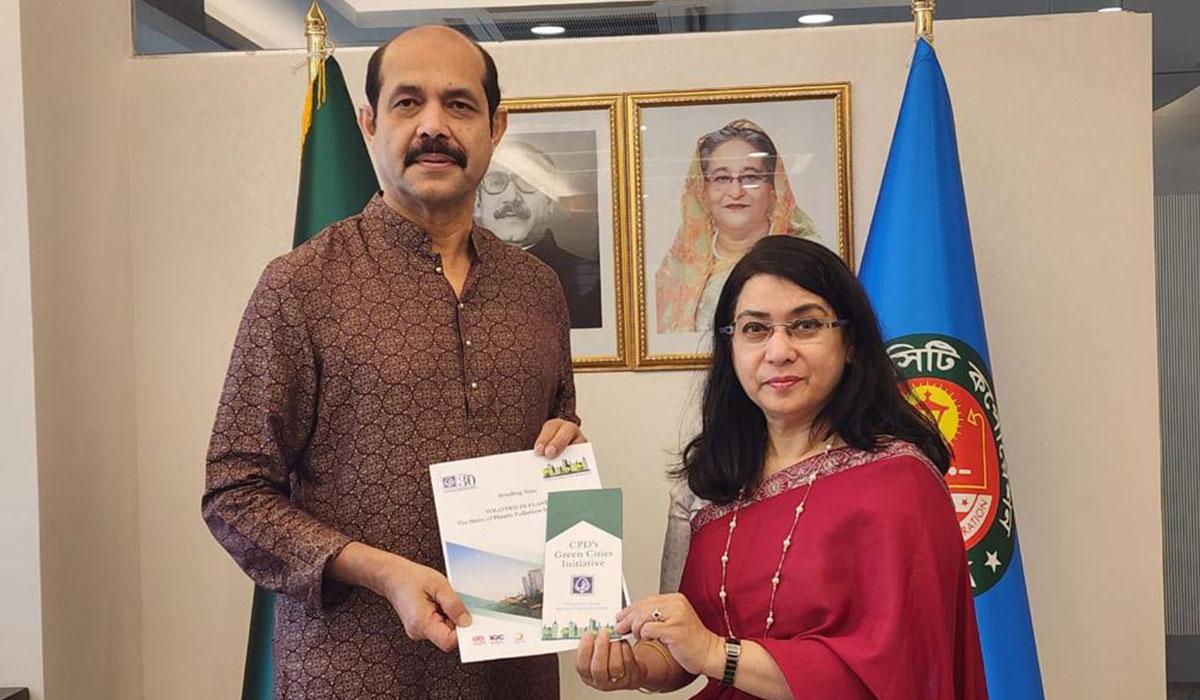Green Cities Initiative

BRIEFING NOTES
SPECIAL REPORT
EVIDENCE PAPER
VIDEO DOCUMENTARIES
TALK SHOWS
PHOTOGRAPHY AND RESEARCH POSTER CONTEST
Blog
Green Cities Without Air and Plastic Pollution?
- IMF’s resilience and sustainability facility: An opportunity for green cities | Fahmida Khatun, Marium Binte Islam and Afrin Mahbub | August 10, 2023
- Air pollution – not just an environmental concern | Fahmida Khatun, Marium Binte Islam and Kashfia Ashraf | July 31, 2023
- Fiscal policies that could tackle air pollution and climate change | Fahmida Khatun | April 17, 2023
- Aren’t we all entitled to cleaner air? | Fahmida Khatun | January 31, 2022
- Poison in The Air | Fahmida Khatun | February 8, 2021
PHOTO GALLERY
ABOUT THE INITIATIVE
With higher industrialisation, and energy consumption in major cities, air and plastic pollution are posing serious threats to health, environment and economy of Bangladesh. The Centre for Policy Dialogue (CPD) has undertaken a programme titled “Green Cities Initiative” which aims to understand the nexus between air and plastic pollution and the economy of Bangladesh, and make relevant policy recommendations. Among various types of pollution, air and plastic pollution are acute in large cities of Bangladesh. Unbalanced production and consumption are related to the problem. Economic, social, and environmental costs of air and plastic pollution are rising, while hampering the growth of the green economy in Bangladesh. Addressing air and plastic pollution will require a coordinated approach involving policy and regulatory reforms, as well as appropriate fiscal and economic instruments, technology, and capacity development. Over time, Bangladeshi policymakers have formulated several polices to address environmental challenges such as pollution. The success of the measures will depend on the awareness of the citizens and the pattern of their behaviour. Transforming Bangladesh’s urban areas into green cities will require engagement of all stakeholders, including the government, the private sector, and citizens.
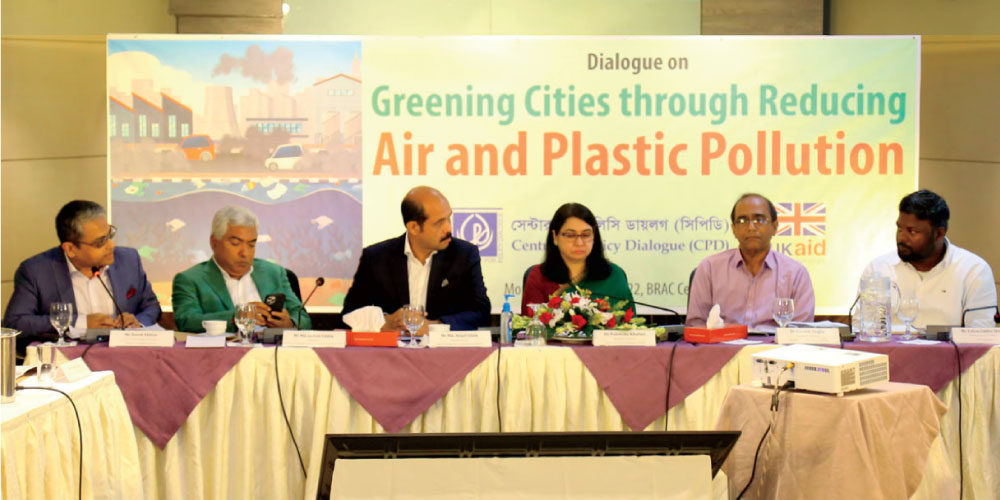
OBJECTIVES
The key objective of the study is to look at the drivers, impacts and solutions with regard to air and plastic pollution in major cities of Bangladesh, and recommend policies to reduce air and plastic pollution. The research, by and large, aims to support the Government of Bangladesh in identifying the implementation gaps towards incentivising the green investments, particularly to reduce carbon emissions in the energy sector.
THEMES

The Green Cities Initiative will focus on two broad thematic areas: i) Air pollution and ii) Plastic pollution
RESEARCH TEAM
Dr Fahmida Khatun
Executive DirectorDr Khatun has undertaken research for several international organisations. Her areas of interest include macroeconomic policy, aid effectiveness, international trade and WTO issues, digital economy, youth unemployment, health issues, social inclusion and poverty eradication, climate change, interests of Least Developed Countries (LDCs), Sustainable Development Goals (SDGs), and women’s contribution to the economy. She has published widely at home and abroad. She is a columnist of the Daily Star, a leading daily in Bangladesh. She is also a contributor to the East Asia Forum.
Syed Yusuf Saadat
Research FellowMr. Yusuf is an award-winning researcher who has undertaken research for organisations such as Friedrich-Ebert-Stiftung, UK Aid, Embassy of Denmark, UNESCAP and UNDP. He is co-author of the book titled “Youth Employment in Bangladesh—Creating Opportunities, Reaping Dividends” published by Palgrave Macmillan. He is a member of the South Asia Economic Policy Network and Young Scholars Initiative. Yusuf is also a British Council trained teacher with professional experience in teaching A Level Economics and O Level English Language.
Afrin Mahbub
Programme AssociateMs. Afrin Mahbub is currently pursuing her Masters of Science in Economics from North South University and has completed her Bachelor of Science in Economics from American International University- Bangladesh (AIUB). Ms. Mahbub’s key interests lie in areas related to ICT, human capital development, gender-based inequality, and macroeconomic policy. Prior to joining CPD, Ms. Afrin Mahbub worked as an Undergraduate Research Assistant under the supervision of the Research Director of Bangladesh Institute of Development Studies (BIDS).
Marium Binte Islam
Programme AssociateMs. Marium pursued her Master of Science in Development Economics from School of Oriental and African Studies (SOAS), University of London and completed her Bachelor of Science in Economics from North South University. Her area of research interests are Macroeconomics, Growth and Development, Environmental Economics, and Econometrics. Previously, she served as a Research Intern at Kantar Research (Bangladesh) Pvt. Ltd. and as a Research Assistant at Economics Research Platform (ERP), Department of Economics, North South University.



